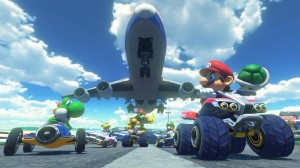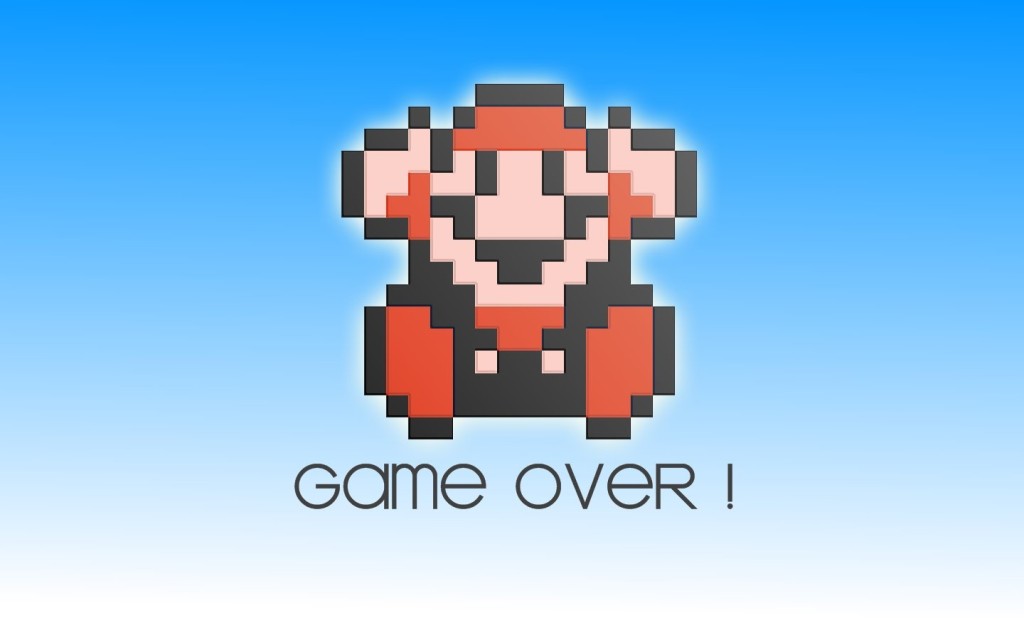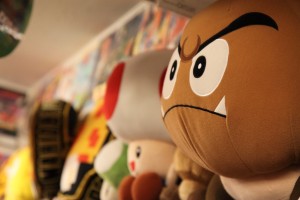Discounting The Wii U: Nintendo or Nintendon’t?
With the recent, albeit not entirely unexpected, news that Nintendo has had to revise its financial targets in the wake of last year’s disappointing sales of its latest home games console, the Wii U, video game analysts the World Wide Web over have been certifiably leaping at the opportunity to finally write off Nintendo as a quantifiable factor in the video games industry. With Nintendo making news at the moment, identifiably for all the wrong reasons it would seem, I think it’s worth reflecting on some of the company’s previous financial missteps (and undeniable successes) that have culminated in Nintendo’s current predicament.
The home-grown Japanese firm, best known for its iconic first-party creations such as Super Mario and Donkey Kong, has been battling with something of a turbulent – and occasionally volatile – history since its entry into the market during the golden age of video gaming in the 1980s. Nintendo’s track record in the home console market since the release of its successor to the SNES, the Nintendo 64, has proven distinctly sketchy and the overall sales figures regarding its various entertainment platforms have been highly unpredictable. Much of this turbulence can be attributed to the fact that Nintendo no longer has homogeneity of the medium, with both Sony and Microsoft now sharing an equally impressive proverbial slice of the video games market.
After seeing off the threat of the once mighty Sega in the early 1990s, Nintendo entered a period of populist appeal within the larger gaming community, introducing some of its most fondly remembered entries (including Super Smash Bros, Goldeneye 007 and Banjo Kazooie) to the industry with its N64 games console. Corporate complacency and disregard for third-party support spelled the death of its much anticipated sequel in the form of the Nintendo GameCube in 2001, facing the full brunt of Microsoft and it’s widely sought after new home console, the Xbox.
The Wii, on the other hand, achieved something nobody in the industry thought possible when it launched back in 2006. Derided by the hardcore gamer market as childish and gimmicky, the Wii became the top-selling platform of its generation, outselling both Sony’s PlayStation 3 and Microsoft’s Xbox 360 in total worldwide sales – over 100 million units sold as of September 2013. This is in painfully stark contrast with the inexplicably poor sales of the Wii U, which has been available for over a year now and has already been outsold by Sony’s PlayStation 4 in the USA after it launched in November last year.
Still, many analysts would no doubt argue that Nintendo has done remarkably well considering its legendary stubbornness and markedly limited investment in new IP’s. In fact, to this day, 7 of the 10 best-selling video games of all time are Nintendo franchises. President and CEO of Nintendo, Satoru Iwata, has maintained that he will not step down from his position in spite of the depressing figures (the Wii U having achieved lifetime sales of less than 3 million units in its first financial year) and an increasingly bleak sales forecast predicted for the Wii U looking toward the immediate future. Plus, It’s unlikely at this stage that the launch of highly lauded titles like Mario Kart 8 and Super Smash Bros U will have much of an impact regarding these figures. A combination of abysmal marketing, poor branding and bad-timing have come together to produce a real dilemma for Nintendo that is almost certain to turn the company, and the future of console gaming, on its head.

Nintendo is placing the security of the Wii U’s future almost squarely on first-party entries at this stage.
The Wii U has been a disastrous sell for Nintendo since it launched at the end of November 2012, make no mistake. However, if history has taught us anything it’s that Nintendo has an extraordinary knack for overcoming adversity, much to the bewilderment of its competitors (and gamers), and the unbridled success of the Wii is undoubtedly testament to that fact. Supporters of the firm would stress Nintendo’s unrivalled success in other areas of the gaming industry, noting the record-breaking sales of its popular DS and 3DS systems, being more than capable of picking up the financial slack. However, with tablet gaming now encroaching on Nintendo’s long-time monopoly of the handheld market, Nintendo needs to review its position in the industry and it needs to do it sooner rather than later. The days are setting when Nintendo could rely on its nostalgic fervour alone to generate sales in what is a rapidly changing and unquestionably dubious industry.




